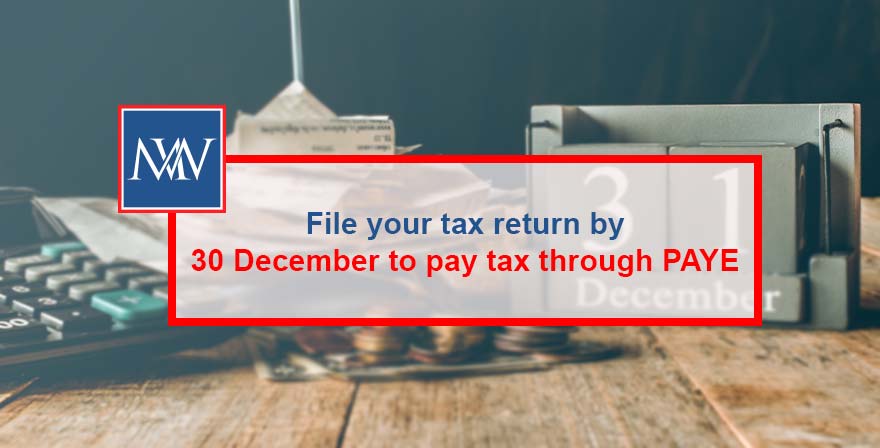
File your tax return by 30 December to pay tax through PAYE
If you need to file a self-assessment tax return for 2021/22, you must do this online by 31 January 2023 if you want to avoid a late filing penalty. However, if you received your notice to file a tax return after 31 October 2022, a later deadline applies; you must file the return within three months of the date of the notice to file.
You must also pay any remaining tax that you owe for 2021/22 by 31 January 2023. If you are self-employed, this is also the deadline for paying Class 2 and Class 4 National Insurance for 2021/22. Where your tax and Class 4 National Insurance liability for 2021/22 is at least £1,000, you must also make your first payment on account for 2021/22 by the same date, unless at least 80% of your tax liability for the year is collected at source, for example, under PAYE.
The need to pay any remaining tax and National Insurance for 2021/22 plus the first payment on account for 2022/23 by 31 January may present something of a financial challenge, particularly given the cost of living crisis. However, if you have a source of income that is taxed under PAYE, there is a way to spread the cost without the need to agree to a Time to Pay arrangement — by opting to pay your self-assessment bill through PAYE. However, there are certain eligibility conditions to be met, and you must also file your 2021/22 tax return online by the earlier date of 30 December 2022.
Am I eligible?
You can pay your self-assessment tax bill for 2021/22 through PAYE if:
- you owe less £3,000 on your tax bill;
- you already pay tax through PAYE (for example, on employment or on a pension);
- you submitted your 2021/22 tax return online by 30 December 2022 or you filed a paper tax return by 31 October 2022.
However, you will not be able to choose this route if:
- your PAYE income is insufficient to collect the tax that you owe (in addition to the tax on that income);
- as a result of the adjustment, you would pay more than 50% of your PAYE income in tax;
- collecting self-assessment tax through PAYE would more than double the tax paid in this way; or
- your tax bill was more than £3,000 but was reduced below this amount as a result of payments on account.
If you owe more than £3,000, you cannot use this option – it is not possible for £3,000 to be collected under PAYE and the balance to be paid by 31 January. However, if you are struggling to pay, you could consider setting up a Time to Pay arrangement to spread the cost.
Where you elect to pay your 2021/22 self-assessment tax bill through PAYE, your 2023/24 tax code will be adjusted to collect the tax throughout the 2023/24 tax year. This effectively allows you to spread the cost over 12 months and pay in interest-free instalments. In a climate of rising interest rates, this is an attractive option (although on the downside, it will reduce your take-home pay each month).
For more information, Book a Free Consultation
Need Accountancy Support?
For information on bespoke training, or if you have any other questions for Makesworth Accountant, please fill in your details below




















 150
150